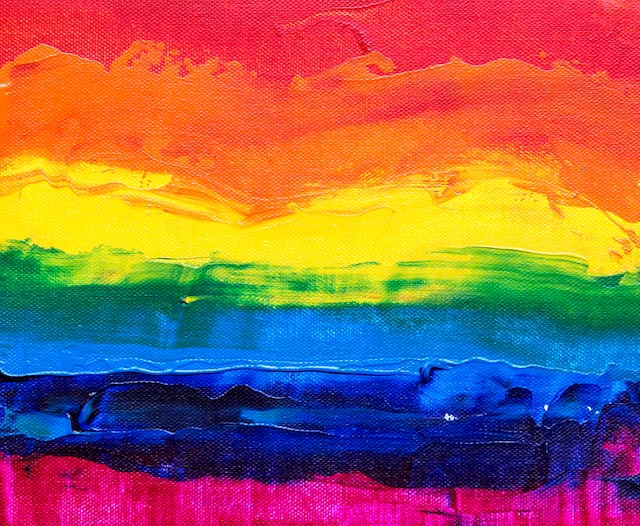On 29 May 2023, Uganda’s President Yoweri Museveni assented to Uganda’s Anti-Homosexuality Bill according to Article 91 (3) (a) of the Uganda Constitution after he had rejected an earlier version of it and asked for some clauses to be reviewed. The new version remains similar and maintains most of the harshest measures and was passed by parliament with 371 votes out of 557 Members of Parliament.[1] While Uganda is the most prominent, recurrent, and at the same time recent example, and its Bill serves as a blueprint, countries such as Kenya[2], Tanzania, South Sudan, Ghana[3], and Botswana have also introduced or are discussing the introduction of similar Bills. We claim these legislative artifacts must be ultimately understood and characterized as a state-sponsored abuse of the law. Nothing else will do justice to the cruelty in play or offer appropriate legal countermeasures.
Characterisation and Contexts of the Bills
The Bills, with titles such as Anti-Homosexuality Bill or Family Protection Bill, have significant overlaps in their content and penalties. One common characteristic is the discrimination of one’s existence, as opposed to the discrimination of specific acts. Beyond that, recurring clauses such as “aggravated homosexuality” and “promotion of homosexuality” are introduced. For example, the Promotion of Proper Human Sexual Rights and Ghanaian Family Values Bill (2021) proposes introducing a ban on sponsoring, advocating, supporting, broadcasting, and distributing sexual orientations, gender identities, gender expressions, and sex characteristics (SOGIESC) materials and groups in Clause 12. Any acts contradicting this ban would be sanctioned with five to ten years of imprisonment. Ultimately, under the guise of morality, culture, and religion, the Bills aim to build on and expand the existing discriminatory legal framework to take further action against “homosexuality”. For example, in the Ghanaian legal framework, this manifests in Chapter 6, Section 104 of the Criminal Offences Act of Ghana (2003). Overall, both the Bills and the public discourse about it endanger the lives of LGBTIQ+ people further.
At the same time, similarities can also be identified in the contexts that drive these legal developments. Whilst particular contexts may differ across countries, it is striking to observe that a cross-section of parties and stakeholders rally behind these Bills uniformly in all countries, unlike in comparison with other issues. This shared political course enables political elites to relegate urgent and contentious issues such as social and economic crises. For example, Ghana is currently experiencing its “worst financial crisis in decades”[4]. While inflation was below 5.00 % of GDP by the end of 2019, three years later, it had reached 50.30 %. Anti-gay sentiment, therefore, serves as a unifying force in both public sentiment and political maneuvering. As a result, LGBTIQ+ people have become scapegoats for political agendas, exploited as a means of distraction and a deceptive unifying factor to divert attention from other, more crucial topics.
Violation of International Human Rights Law and the Constitutions
The international, regional, sub-regional, and national normative frameworks dedicated to human rights protection are clear regarding SOGIESC rights. For example, the African Charter on Human and Peoples’ Rights makes an important promise to all African people in Art. 2. The promise is that “every individual shall be entitled to the enjoyment of the rights and freedoms recognised and guaranteed in the present Charter without distinction of any kind […]”. Inevitably, this also includes queer people. And following this, the Constitution of Kenya, representative of all African Constitutions, highlights in Art. 27 that “every person is equal before the law and has the right to equal protection and equal benefit of the law”.
Nevertheless, SOGIESC rights are probably the most contentious category of human rights in Africa, and human rights violations persist with little or no change.[5] Introducing these Bills is a manifestation of this and violates international, regional, sub-regional, and national law.[6]
Law as Strategic Political Tool The law operates within a distinct semi-autonomous social field[7], is intricately intertwined with society, and assumes various functions and roles. It can shape, incentivize, and regulate societal behaviour, favour certain groups, and advance individual or collective objectives. In the context of discriminatory state-sponsored legislation, the law is manipulated as a strategic political tool[8], resulting in life-threatening consequences for LGBTIQ+ individuals. In this context, the regulatory mechanisms of the law are abused, as its application is only a means to an end that is clearly unconstitutional and cruelly violates international human rights obligations. Identifying these laws as abusive can do justice to the cruelty in play and offer appropriate legal countermeasures. For example, civil society has taken action by filing two petitions against the Ugandan Anti-Homosexuality Act (2023) at the Constitutional Court to challenge its constitutionality. Human rights activists must be prepared to take these steps through the full breadth of the legal system, including, if necessary, the African human rights system.
[1] Human Rights Awareness and Promotion Forum, ‘1 A LEGAL AND HUMAN RIGHTS ANALYSIS OF THE AMENDMENTS TO THE ANTI-HOMOSEXUALITY BILL, 2023’ (3 May 2023) <https://hrapf.org/?mdocs-file=11285&mdocs-url=false>.
[2] Emily Chudy, ‘Kenya plots vile anti-homosexuality law to ‘kick LGBT people out of the country completely’’ PinkNews (23 June 2023) <https://www.thepinknews.com/2023/06/23/kenya-tanzania-south-sudan-anti-homosexuality-laws-uganda/> accessed 14 July 2023.
[3] Ohotuowo Ogbeche, ‘Ghana’s anti-LGBTQ bill sparks spike in “legally sanctioned” extortion’ African Arguments (29 November 2022) <https://africanarguments.org/2022/11/ghana-anti-lgbtq-bill-sparks-spike-extortion/> accessed 2 April 2023.
[4] Kent Mensah, ‘How Ghana, Africa’s rising star, ended up in economic turmoil’ Al Jazeera (31 December 2022) <https://www.aljazeera.com/features/2022/12/31/how-ghana-africas-rising-star-ended-up-in-economic-turmoil> accessed 9 August 2023.
[5] Frans Viljoen, International Human Rights Law in Africa (OUP Oxford 2012), 259.
[6] Similar analysis of an earlier version of the Uganda Anti-Homosexuality Act: John C Mubangizi and Ben K Twinomugisha, ‘Protecting the right to freedom of sexual orientation: what can Uganda learn from South Africa?’ (2011) 22(2) Stellenbosch Law Review <https://journals.co.za/doi/epdf/10.10520/EJC54782> quoted in Stella Nyanzi and Andrew Karamagi, ‘The social-political dynamics of the anti-homosexuality legislation in Uganda’ (2015) 29(1 (103)) Agenda: Empowering Women for Gender Equity 24 <http://www.jstor.org/stable/43825974>, 25.
[7] Sally F Moore, ‘Law and Social Change: The Semi-Autonomous Social Field as an Appropriate Subject of Study’ (1973) 7(4) Law & Society Review 719.
[8] Sylvia Tamale, ‘Confronting the Politics of Nonconforming Sexualities in Africa’ (2013) 56(2) African Studies Review 31 <http://www.jstor.org/stable/43904926>.



One reply on “Anti-Homosexuality Bills are an Abuse of the Law”
[…] Building on this commitment to human rights, Angola, Namibia, and Mauritius collectively decriminalized same-sex relationships in a historic move. These commitments showcased a shared push for inclusivity and human rights within the region. They gain added significance when contrasted with countries like Uganda that have abused the law, adopting an Anti-Homosexuality Bill. […]